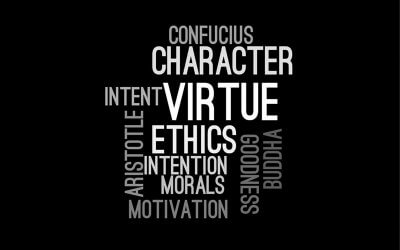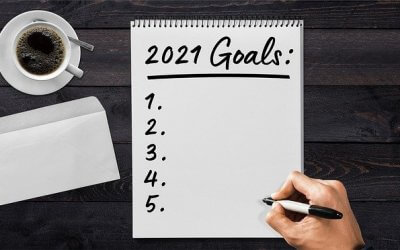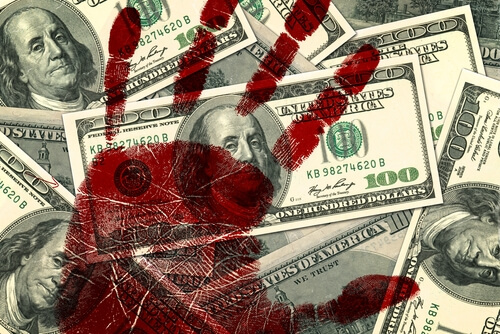Discover how understanding the limitations of averages and embracing probabilistic thinking can improve decision-making and risk management in business.

Align and Thrive: The Importance of Organizational Alignment and Agility
Introduction: The Need for Alignment in Agile Growth Companies
During a recent conversation with a fellow professional, the topic of organizational alignment arose. For a company to grow and adapt, it must be aligned, with all activities reinforcing its objectives. Alignment begins with the CORE – Core Values, Core Purpose, Core Customer, Brand Promise, and Profit/X, and these elements form the foundation upon which everything else is built.
Building Strategy Around Your Core
Once the CORE is established, you can develop a strategy that includes your Flywheel, BHAG, 3HAG, and 13-Week Sprints. The strategy should be based on the CORE without contradicting any of its elements. With a solid strategy, execution then focuses on achieving the targets set out in the strategy.
The Pitfalls of Misaligned Goals
Many companies set Core Values, a five-year plan, and annual goals but fail to align these with their CORE. This misalignment can result in pursuing revenue at the expense of profitability or prioritizing profit to the detriment of essential investments in people, processes, and equipment. Such scenarios are common in Corporate America and often wrongly attributed to short-termism.
The Power of Alignment and Agility
Alignment and agility are crucial for sustainable growth. When a company is aligned, its activities reinforce its Flywheel, target Core Customers, meet customer needs, deliver products and services efficiently, fulfill the Brand Promise, and achieve the Profit/X goal.
Agility enables an organization to respond effectively to a changing world. In an ever-changing environment, decision-making must be pushed to where the information is. Proper decision-making can only happen when the decision-maker knows the organizational intent (Strategy) and the framework for making that decision (CORES).
Conclusion: Aligning Your Organization for Success
To achieve the growth and success you seek, identify your CORES and develop a strategy accordingly. Ensure that everything in your organization aligns with these CORES, and you will be well on your way to thriving in an ever-changing business landscape.
Recent Posts
The “Flaw of Averages” Causes Havoc for Businesses
What is Your Strategy, In a Sentence?
If you are banking on the vaccine returning us all to “normal” quite quickly, in the famous words of Dr. Akande, “Hope is not a strategy.” Your organization should be preparing a well-defined strategy for 2021 and beyond. Once you have this strategy, the ultimate question: can you clearly articulate it in one sentence? Distilling your strategy into a single sentence is a powerful tool, both for your legacy and your team effectiveness. Not sure where to start? I offer a plug-in formula to set up your strategy sentence.
Character Matters
“It’s easier to hold to your principles 100% of the time than it is to hold to them 98% of the time.” — Clayton Christiansen. I have often written about the importance of a company’s Core Values. That’s because no matter what words you may have chosen as values, your organization’s Core Values are on display in how leadership and employees actually behave. As I’ve said before, how you have acted in the last twelve months will define your career for the next decade. Your character, and your company’s character, matters.
New Year’s Resolutions, Once More Unto the Breach
The holidays have been even quieter than normal, which has given me plenty of time to reflect on my New Year’s resolutions. Looking at 2021, I decided to use a completely new approach to lay out my goals. The result of my new approach? A highly-detailed, accountable, actually achievable plan for the next year (I think). Wondering what this process looks like?
To Vaccinate or Not to Vaccinate, that is the Question
What do your employees, peers, and leadership team think of the COVID-19 vaccine? Will you require the vaccine, or will you let employees make individual decisions? As a leader, you need to steer the discussion about vaccines in your organization with your Core Values in mind. No matter what strategy your organization takes, the most important factor is going to be how you communicate your decision.
3 Ways You Could be Undermining Your Core Values
Can you answer “Why does your organization exist? What are your core values?” Great. Now, would your latest entry-level employee give a similar answer? How about someone who has been at your company for a year? Your core values give your organization a guiding mission. Many organizations pay this idea lip service, but their true commitment to their core values was tested this year. As we close out 2020, there’s no better time to examine how your organization is approaching your core values.
Are You Prepared for 2021 With Enough Cash?
Companies don’t go bankrupt because they lose money; rather, they run out of cash. Where are we, heading into 2021? First, you can expect your cash to get tighter as we weather the current economic slowdown. Then, with a vaccine on the horizon, you will need to be positioned for growth. If you don’t have the cash you need, have you looked at how you can generate the cash internally? More on how to improve your cash conversion cycle…
Tony Hsieh, a Corporate Culture Icon, RIP
In his work as Zappos CEO and elsewhere, Tony Hsieh believed, and proved, that culture is the most important thing in an organization. According to Hsieh, if you get the culture right, the rest will take of itself. How did Zappos do it? You can take a look at everything from the company’s interview questions, to “The Offer” to leave a position as a new hire. Hsieh believed that a company’s brand is just a reflection of the culture, and his legacy is felt across so many industries.
CEO, Try Thy Hiring System
How does your company hire? I’ve seen the good, the bad, and the surprisingly ugly hiring processes in my career. From the HR email mix-ups to the interviewer watching the World Series while I responded to his questions, I’ve learned that you can tell a lot about an organization simply by examining the hiring experience. Are you chasing away the kind of people you need at your company?
What is Leadership?
What is it, exactly, that great leaders do? There are plenty of overused adages about “leadership” in business. It’s worth examining the tropes around leadership, plus the traits of the leaders who actually leave a mark. Great leaders are forged through adversity, and they leave a legacy. What does that look like in your organization?














